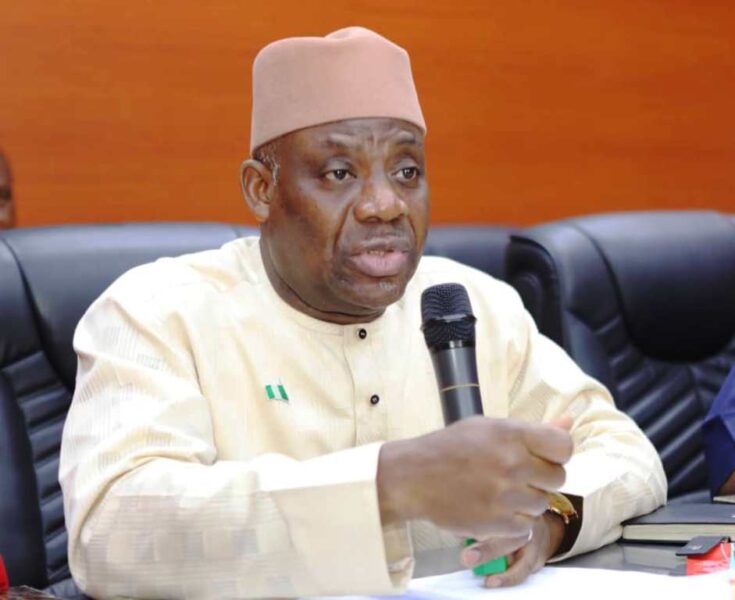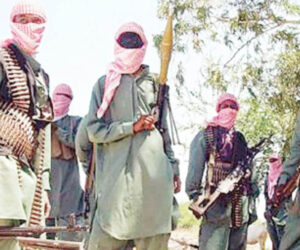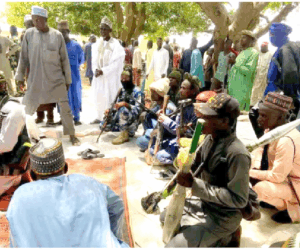Education in northern Nigeria is dying in silence. A recent investigation by this newspaper revealed a heart-wrenching reality. At least 188 public schools have been shut down due to worsening insecurity. The situation is beyond tragic; it is a full-blown collapse of authority and governance.
From Zamfara to Niger, Katsina to Benue, Sokoto to Kaduna, schools have been forced to shut their gates. In Zamfara alone, 39 schools—20 primary and 19 secondary—are closed. Niger State has lost 30 schools, including 18 primary, one secondary, and 11 nomadic institutions. Katsina follows with 52; Benue, 55; Sokoto and Kaduna, six each. Some have become IDP camps, others shelters for security operatives, a few others stand in ruins, overgrown by weeds and silence but the majority are now safe haven for bandits. They use them as their homes, and at the same time, spaces for violating the sanctity of their victims, including women and children that are being raped on a daily basis.
The figures are horrifying, yet incomplete. Many affected areas remain inaccessible, meaning that the actual number of schools forcefully shut by bandits is higher.
SPONSOR AD
The loss is not only of structures but of children’s futures. UNICEF’s 2024 report already puts Nigeria’s number of out-of-school children between 10 and 20 million, among the highest in the world. With these new closures, the figure will climb even higher, specifically in the North.
What we face is not just insecurity but the erosion of civil authority. When a state can no longer protect classrooms, it has failed in its primary duty. Closing schools may appear to be a safety measure, but it is actually a surrender to fear. By locking those gates, we have effectively handed the schools to the bandits. The communities have become ungoverned territories outside Nigeria’s control.
Every ungoverned space is a ceded territory. This sad reality mirrors the protectorate system of the colonial era when weaker territories were “protected” by stronger powers. The difference today is that the owners of those ceded communities are bandits and outlaws who dictate who farms, who travels and who learns. They have become de facto rulers in parts of the North, collecting taxes from farmers and enforcing their own version of law and order.
This descent into chaos did not happen overnight. Banditry began as an uprising of ragtag criminals, fuelled by poverty, injustice and the collapse of local security. Over time, it metastasized into a monster, feeding on political negligence and corruption. The farmer-herder conflict, once an economic issue, was politicised and left to fester. It has since created fertile ground for bandits who now hold entire communities hostage.
The political class, meanwhile, has been caught napping. Leaders who swore to protect their people now watch helplessly as children’s futures are destroyed. Instead of coordinated action, we get empty speeches, photo ops, and security meetings without outcomes. This inertia is unforgivable.
Closing schools is not a solution, it is capitulation. It mortgages the future of an entire generation to armed criminals. In some areas, both primary and secondary schools have been closed for years. What was meant as a temporary measure has become the new normal. In other places, children now study under trees in IDP camps. This is not safety, it is abandonment.
The consequences of this collective inaction will be catastrophic. An uneducated generation is a ticking time bomb. Without education, these children will grow up trapped in poverty, anger and ignorance. They would become easy prey for extremists and criminal gangs.
Northern Nigeria already suffers from low literacy rates; allowing more children to drop out is to deepen the region’s underdevelopment and insecurity.
It is time to reclaim our schools, and with them, our future. The federal government must restore security and civil authority in all the affected areas.
The 1999 Constitution is clear: the protection of lives and property is the primary duty of the state. Anything short of this is a breach of the social contract. States and local governments must also take ownership of the crisis; they cannot hide behind the federal structure.
Governors must work with local councils, traditional institutions and vigilante networks to recover and protect every community. Security operations should be intelligence-driven, sustained and localised. Bandits must not be allowed to regroup, once dislodged.
However, securing the schools is only one side of the coin. The other is educational recovery. Government must launch a northern education recovery plan to rebuild and reopen all affected schools. This should include establishing education recovery funds with contributions from the federal and state governments, private sector and international partners; rebuilding and fortifying schools with perimeter fencing, watchtowers and security personnel; deploying mobile teachers and classrooms in IDP camps to prevent learning loss; using radio and digital learning tools to reach displaced children; reviving and properly funding the Safe Schools Initiative.
Beyond infrastructure, we must invest in hope. Communities must see that government is present and willing to fight for them. The presence of police posts, local councils, functioning hospitals and active schools are the true symbols of governance. Any part of Nigeria where citizens live under the dictates of bandits is effectively outside Nigeria. That cannot continue.
Leaders must act with urgency and courage. They must speak less and do more. It is not enough to mourn each attack; there must be results.
The North has produced leaders who once built industries and universities from scratch. The same determination is now needed to defend the most basic foundation of progress, which is education.
We cannot talk about development, peace or democracy when millions of our children are growing up without education. Bandits may have chased them out of the classrooms, but they must not be allowed to steal their future. No nation abandons its children to criminals and survives.







